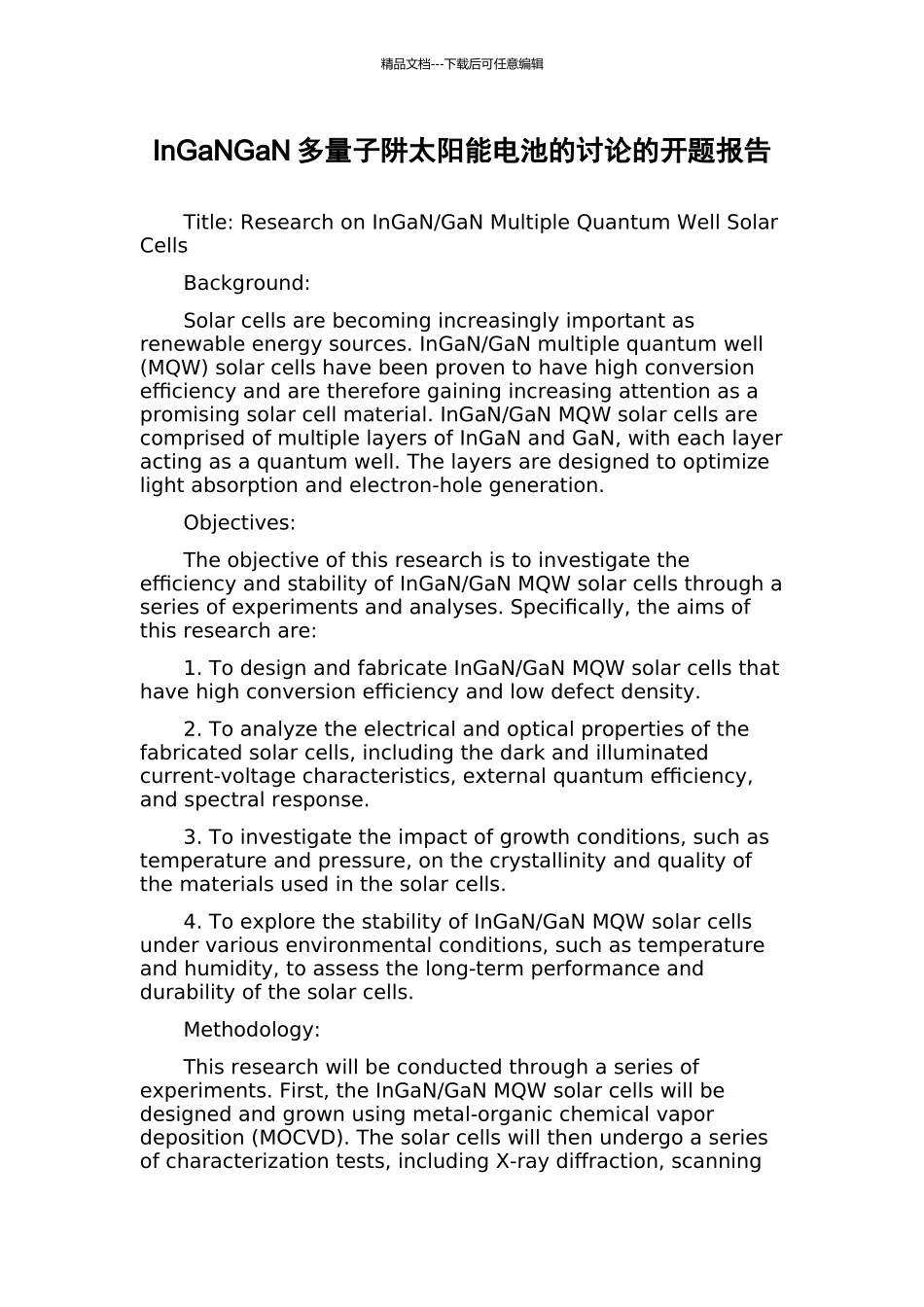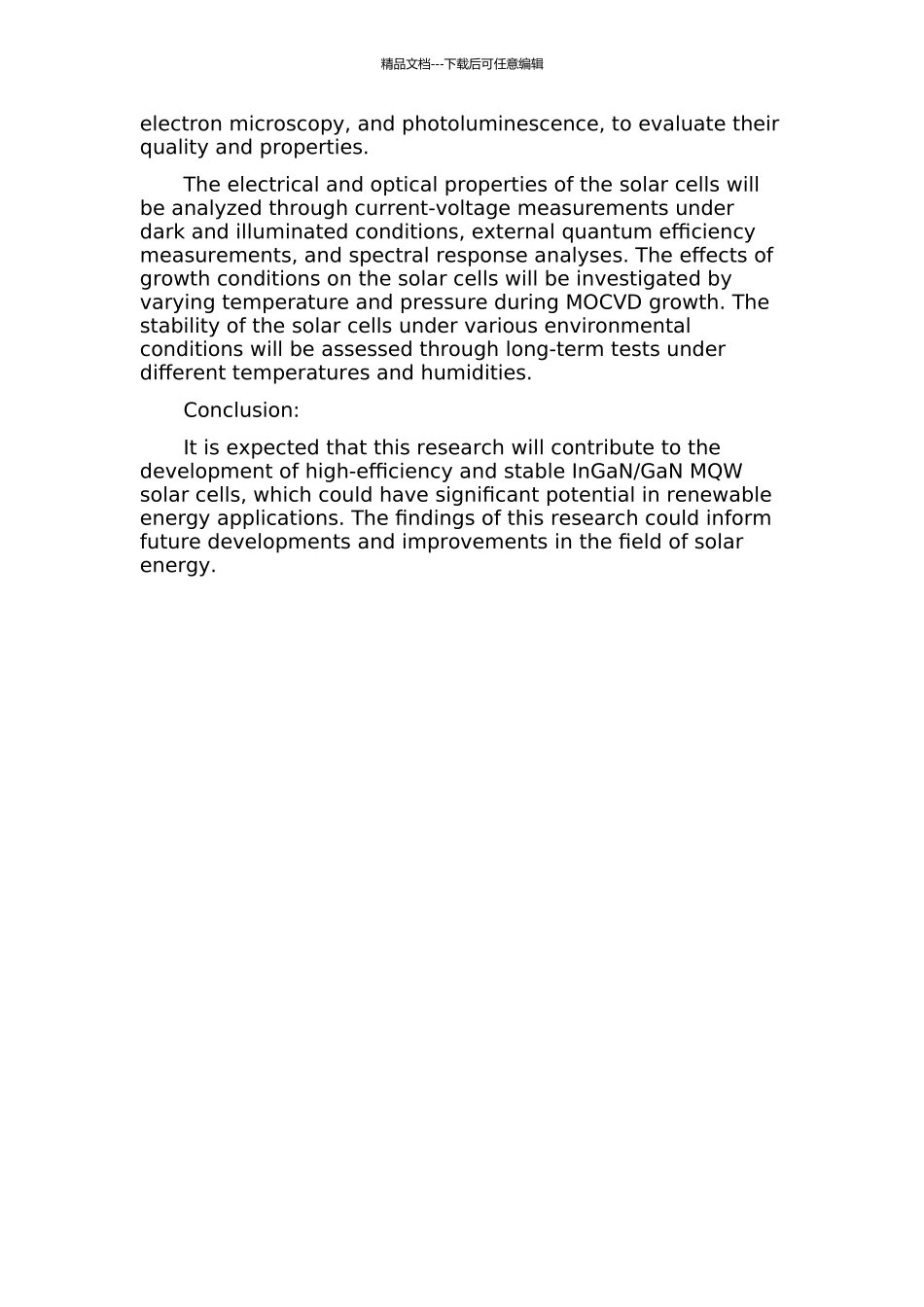精品文档---下载后可任意编辑InGaNGaN 多量子阱太阳能电池的讨论的开题报告Title: Research on InGaN/GaN Multiple Quantum Well Solar CellsBackground:Solar cells are becoming increasingly important as renewable energy sources. InGaN/GaN multiple quantum well (MQW) solar cells have been proven to have high conversion efficiency and are therefore gaining increasing attention as a promising solar cell material. InGaN/GaN MQW solar cells are comprised of multiple layers of InGaN and GaN, with each layer acting as a quantum well. The layers are designed to optimize light absorption and electron-hole generation.Objectives:The objective of this research is to investigate the efficiency and stability of InGaN/GaN MQW solar cells through a series of experiments and analyses. Specifically, the aims of this research are:1. To design and fabricate InGaN/GaN MQW solar cells that have high conversion efficiency and low defect density.2. To analyze the electrical and optical properties of the fabricated solar cells, including the dark and illuminated current-voltage characteristics, external quantum efficiency, and spectral response.3. To investigate the impact of growth conditions, such as temperature and pressure, on the crystallinity and quality of the materials used in the solar cells.4. To explore the stability of InGaN/GaN MQW solar cells under various environmental conditions, such as temperature and humidity, to assess the long-term performance and durability of the solar cells.Methodology:This research will be conducted through a series of experiments. First, the InGaN/GaN MQW solar cells will be designed and grown using metal-organic chemical vapor deposition (MOCVD). The solar cells will then undergo a series of characterization tests, including X-ray diffraction, scanning 精品文档---下载后可任意编辑electron microscopy, and photoluminescence, to evaluate their quality and properties.The electrical and optical properties of the solar cells will be analyzed through current-voltage measurements under dark and illuminated conditions, external quantum efficiency measurements, and spectral response analyses. The effects of growth conditions on the solar cells will be investigated by varying temperature and pressure during MOCVD growth. The stability of the solar cells under various environmental conditions will be assessed through long-term tests under different temperatures and humidities.Conclusion:It is expected that this research will contribute to the development of high-efficiency and stable InGaN/GaN MQW solar cells, which could have significant potential in renewable energy applications. The findings of this research could inform future developments and improvements in the field of solar energy.

